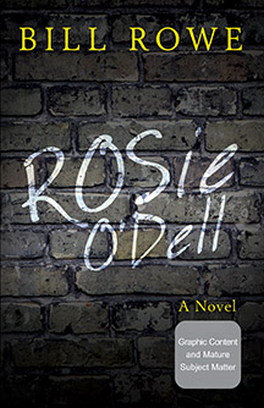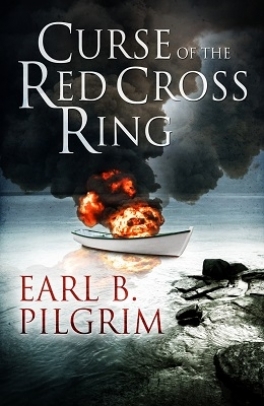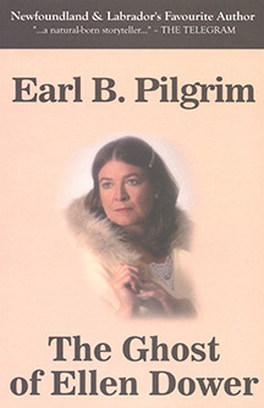A novel of crime and passion in nineteenth-century Newfoundland Alexander Pindikowsky, a Polish artist working in Heart’s Content, is arrested in 1880 for the crime of forgery. He is sentenced to fifteen months at Her Majesty’s Penitentiary in St. John’s. Governor John Hawley Glover, when made aware of Pindikowsky’s talent, arranges for the prisoner to serve part of his sentence in a most unusual way—designing and painting ceiling frescoes at Government House. Ellen Dormody, a parlour maid at Government House, witnesses first-hand the brilliance of Alexander’s artistry. She is at once captivated by the mysterious painter. Inspired by true events, Art Love Forgery is a story of forbidden love in nineteenth-century St. John’s, a legend that lives on within the walls and ceilings of Government House. Long listed for the Miramichi Reader The Very Best! Book Awards 2017
St. John’s, October 1882
With a clarity that Ellen hadn’t experienced in a very long time, she knew exactly what she had to do. Tucking the blankets around her sleeping daughter, she walked briskly, pushing the baby carriage to the end of Water Street and then up Prescott Street, which was really not a street at all but a long, winding, steep hill. She pushed the pram, gasping for breath as she reached the top. She crossed Queen’s Road to Military Road, dodging horses, carts, manure, and mud.
The Presentation Convent was her destination. It stood to the right of the Roman Catholic Cathedral. The two-towered stone building was the boast of all Catholics in the city and it was the defining structure, seen as soon as a ship passed through the Narrows and into St. John’s harbour. Ellen’s mission was to talk with Sister Mary Angela. She would confess to her what she hadn’t been able to confess to anyone up until now. She entered the foyer of the convent, pulling the pram after her.
Sister Mary Teresa was seated at her desk. No one would get past this desk and into the convent without her permission. She was the gatekeeper, and Ellen hoped that she was in a benign mood because she desperately needed her co-operation today.
“Good morning. I need to speak with Sister Mary Angela on an urgent matter. Could you tell her that Mrs. Alexander Pindikowsky is here?” Ellen spoke with confidence, hoping to project what she didn’t feel.
“Sister Mary Angela’s quite busy, Miss Dormody. I doubt if she can see you today. You could make an appointment for tomorrow.”
Ellen could see that Sister Mary Teresa wasn’t going to make her visit easy. She was flexing her power and enjoying herself. Addressing her as Miss Dormody was an intended slight and informed Ellen that she recognized her and knew everything about her.
“I’m sure she’s busy,” Ellen replied, carefully keeping her temper under control, “but the matter I need to discuss with her is urgent, and I would be grateful if you would at least tell Sister Mary Angela that I am here. I don’t mind waiting.” She prayed that Johanna would keep sleeping. If she started wailing, her chance of a meeting would be lost.
“Very well, wait here and I’ll see if she’s available,” said Sister. She left, closing the door firmly behind her.
When Ellen heard Sister Mary Angela’s lilting voice in the corridor, she sighed with relief.
“Ellen, what a wonderful surprise,” she said, walking over to the young woman and kissing her on the cheek. She smelled of Mornay, Lily of the Valley, soap. It was the smell Ellen associated with her, and it reassured her. “Come through into my office and we’ll have a visit. Sister Mary Teresa will mind little Johanna. You’ll bring her to us if she wakes up, won’t you, Sister?”
“Of course I will,” said Sister Mary Teresa, as pleasant as could be.
As soon as the door closed behind them, Sister Mary Angela looked at Ellen carefully. “You have something big on your mind, I think. Now, out with it. It won’t do you any good to keep it bottled up, you know.”
Ellen tried to keep her voice from quavering. “I haven’t heard from Alexander since he left almost four months ago. No one else knows. I told Mother that I’ve been receiving letters all along. I’ve become really good at making up the news from New York. I’m an expert on a place I’ve never been. I don’t understand what’s happened. I’m afraid he’s sick or hurt. You know when he’s creating his frescoes he has to work high up on scaffolding, and I’m afraid he’s injured or worse. I can’t stand not knowing any more. You have to help me. I love him so much.” It all came out in a rush, and now Ellen couldn’t keep back her tears. Sister Mary Angela wrapped her arms around her and patted her back, trying to soothe her.
“Enough now, my dear, dry your eyes and blow your nose,” she said, handing her a clean cotton handkerchief that she had pulled out of the pocket hidden in her robe. “I’m sure there’s a reasonable explanation for why you haven’t heard from Alexander.”
“Everyone thinks he’s deserted me,” Ellen wailed. “They think he just married me because he wanted to look respectable after his prison sentence and that he was just biding his time, waiting for a chance to leave me and Johanna.” Her tears started flowing again.
“You’re wrong, you know, not everyone feels that way. No one who ever saw the two of you together could deny his love for you. And he’s besotted over Johanna. There must be some reason why his letters haven’t arrived. Maybe they’ll all come in a bunch.”
“Even if they do, it’s not enough. Not anymore. I’ve been like someone in a trance, looking after the baby and blocking out everything and everyone. Johanna and I must go to him. I have to find him, and that’s where I need your help. You have connections through the archdioceses in New York. When Alexander left he said he was going to try for work at the churches and convents. Would you make inquiries for me? If I knew where he last worked, I’m sure I could find him. I have enough money saved for passage to New York. Johanna and I need to be on the next ship going there. We need to be a family again. I will not wait any more.”
“I’ll start inquiries immediately and I’ll send a messenger to you as soon as I find out any news. Don’t worry, dear, have faith in God. We will find your Alexander.”
Sister Mary Angela walked with Ellen back to the foyer. She peeked into the carriage at little Johanna, who was still sleeping. “She’s so beautiful, just like you,” she said, smiling at her. “God be with you both, my child.”
“And with you,” Ellen said, returning her smile. She left the convent, feeling renewed, and walked down the hill to her mother’s house on Victoria Street, remembering the events that had led her to Alexander.
There are many fascinating characters that exist in archival documents that need to be brought to life. Their stories need to be told. The story of the artist and convicted forger Alexander Pindikowsky is most definitely one of them. Carolyn Morgan takes his story into some of St. John’s finest historic buildings and into an evolving love affair. She gives life to characters from our history.-- Larry Dohey, Manager of Collections and Projects, The Rooms --
A well-written and engaging novel that was inspired by real historical people and events, Art Love Forgery will keep you turning pages.-- Miramichi Reader --
Carolyn Morgan has spun a wholly satisfying romance yarn.-- Northeast Avalon Times --
Based on the true story of a Polish artist — who is also a convicted art forger — named Alexander Pindikowsky, debut Canadian author Carolyn Morgan has brought a moment in our country’s history to life.-- Toronto Star --
The 19th-century setting is well-evoked, from the growing environs of St. John’s to ladies’ fashions, the latter gorgeous ensembles of ashes-of-rose peau de soie, ruffled tulle encircling necklines and sleeve cuffs, offset with black soutache ornamental trim. Such vivid description gives the book life.-- The Telegram --
An engaging and wonderful story. [Carolyn Morgan] brings real people back to life in a well-written perspective of the past.-- Tint of Ink --
More than anything this book proves the axiom ‘write about what you know,’ and Morgan’s knowledge of English literature, visual art, and her native city serves her well in creating a fast-paced, plot-driven read that will please many.-- Newfoundland Quarterly --























